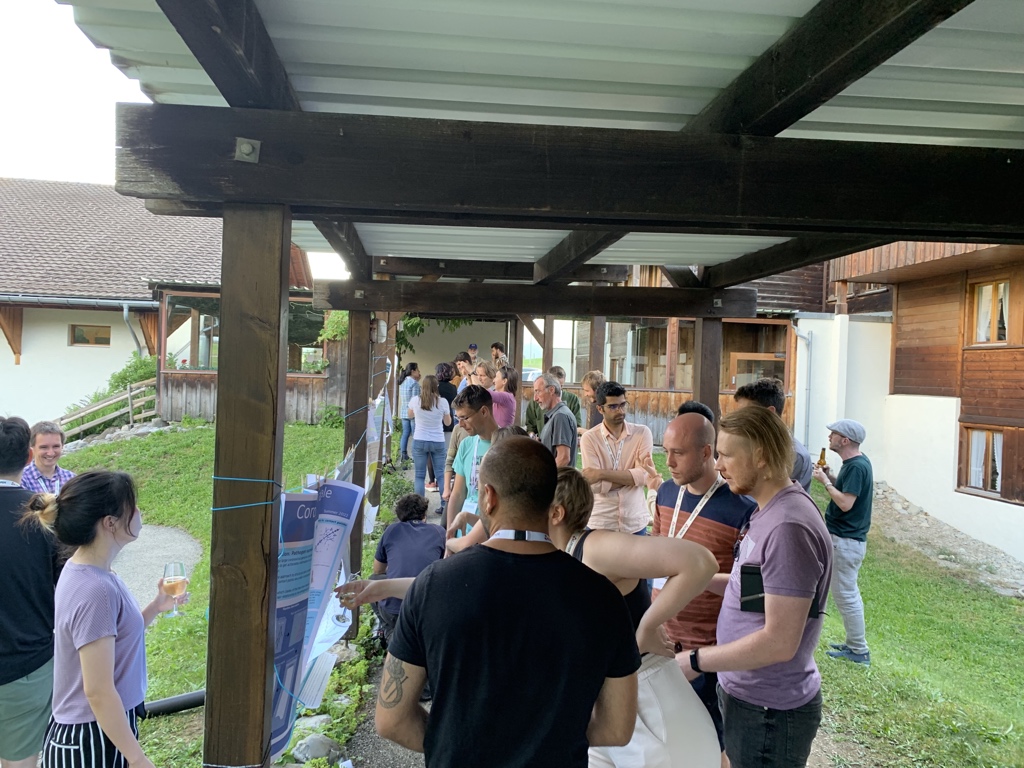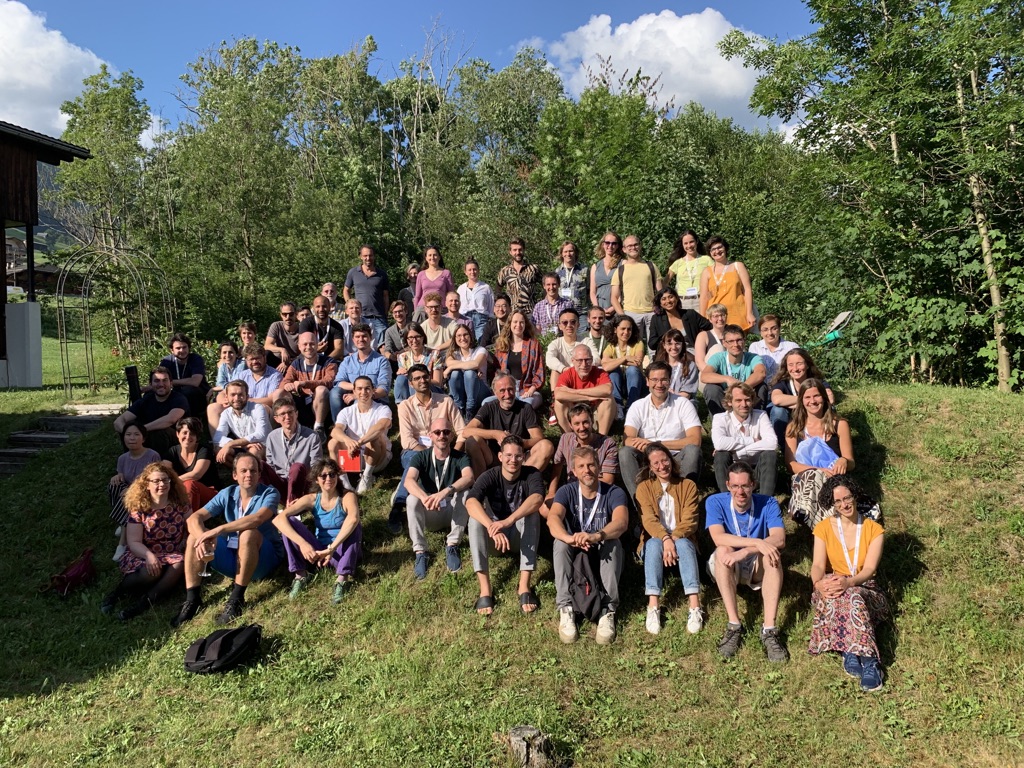This year, the MCEB international conference was held in Switzerland for the first time in its history.
During five days, from June 26th to 30th 2022, experts in mathematical and computational evolutionary biology from all over the world exchanged about their passion in Chateau d’Oex, in the heart of the welcoming mountains of the regional natural park of Gruyeres.
Here is a little summary on this annual not-to-be-missed event for evolutionary biology aficinionados.
The edition 2022 of the international MCEB conference brought together a hundreds of scientists from diverse disciplines and at different stages of their career, from PhD students to world-renown senior scientists. During five consecutive days, the Chateau d’Oex has hence been the improbable scene of inspiring exchanges about evolution between mathematicians, computational biologists, evolutionary biologists, ecologists, epidemiologists and cancer biologists.
View from the conference venue (left) and cheese making social activity (right).
In total, 6 one-hour talks and 20 short talks were given to present epistemological perspectives, recent methodological advances and challenges yet to be addressed for reconstructing the evolutionary history of the genes, genomes, populations and species
observed then and today on Earth.
As a mirror of the truly interdisciplinary nature of the event, a wide range of phylogenetic structures have been discussed during these five days. Networks of gene flows, phylogenetic trees, or genealogical trees predicted by coalescent theory
were on the menu of this year.
Experts specialized in introgressive events such as horizontal gene transfers or endosymbioses provided insights on the methods and challenges to model reticulate evolution. With this respect, an inspirational talk was given on how ghost lineages that went extinct in the past but nonetheless exchanged some DNA with ancestors of extant species could mislead our interpretation
of the directionality of gene flows within phylogenetic networks.
Lectures on the theoretical advances that were made throughout the last 50 years in the reconstruction of gene and species phylogenetic trees were then given by world leaders in the field of phylogeny. In particular, they provided mathematical evidence that contrary to what is practiced today to reconstruct species trees, neither the consensus tree of several gene trees nor the tree inferred from the concatenated alignment of these genes actually give a good approximation of the phylogeny of the different species encoding these genes, which highlights the urgent need to pursue methodological efforts to better model species evolution.
On shorter evolutionary timescales, numerous mathematical models to infer geneological trees of human populations or cancer cell lineages were also presented during the conference.
Poster session (left) and group photo (right).
Finally, a strong focus was placed this year on methods for coupling phylogenetic inferences with phenotypical, ecological, archaeological, geographical, epidemiological and medical data in order to study how traits or diseases evolved across space and time. Striking examples of these integrative analyses were provided by methodologies to retrace with accuracy the evolution of the recent Sars-Cov2 and MERS-Cov pandemics over time and space.
In addition to these talks of exceptional scientific quality, two poster sessions animated by junior researchers and students took place during the conference and were truly appreciated by every participants for the scientific excellence of the posters and the conviviality of the moments.
Overall, through five days of scientific presentations, poster sessions, dinners, parties and social activities such as hiking in the Alpes or visiting a cheese factory, scientific exchanges and informal talks were fostered and allowed to create news bonds within this community of researchers.
The MCEB 2022 conference was a great success as it enabled a diversity of scientists from all over the world to meet, exchange on their work and build new collaborations!




